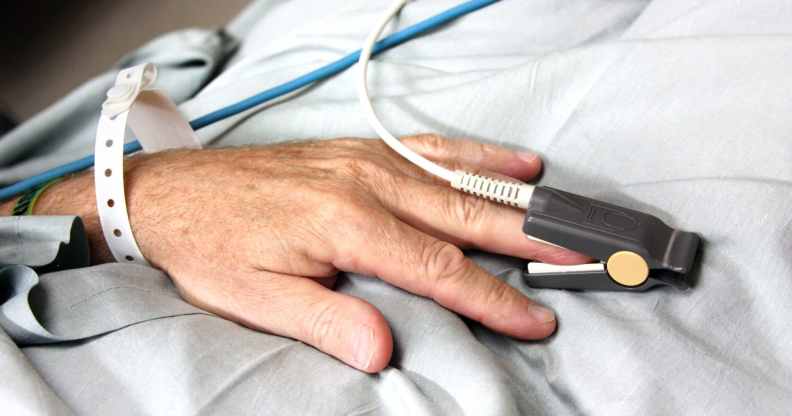LGB Brits drink more, smoke more and have worse mental health, says landmark NHS report

An NHS report as exposed the different health outcomes for LGB and straight people (Envato)
A landmark NHS report has laid bare the concerning health inequalities faced by lesbian, gay and bisexual adults in the UK.
The first-of-its-kind report, published today (6 July) by NHS Digital, is based on data from 1,132 LGB adults who participated in the Health Survey for England between 2011–2018.
The research found that LGB adults are more likely to drink more, smoke more and have worse mental health than the straight population, with worse health outcomes as a result.
Despite LGB adults being 12 per cent less likely to be overweight or obese than straight people, a higher proportion of LGB people (7 per cent) reported “bad” or “very bad” health, compared with heterosexual adults (6 per cent).
The prevalence of limiting longstanding illness was also higher at 26 per cent compared to 22 per cent.
When asked about alcohol consumption, 32 per cent of LGB adults reported drinking levels which put them at increased or higher risk of alcohol-related harm (more than 14 units per week) compared to 24 per cent of heterosexual adults.
A similar trend was found with smoking, with more LGB adults (27 per cent) than heterosexual adults (18 per cent) saying they are current smokers. The proportion of adults who currently smoked cigarettes was highest among LGB women at 31 per cent, and lowest among heterosexual women at 16 per cent.
LGB adults also had lower average mental wellbeing scores on the Warwick-Edinburgh Mental Wellbeing Scale (48.9) compared with heterosexual adults (51.4), with LGB women reporting the lowest wellbeing scores (47.3).
Sixteen per cent of LGB adults said they had a mental, behavioural or neurodevelopmental disorder as a longstanding condition; the proportion of heterosexual adults reporting the same was significantly lower at 6 per cent.
LGBT+ people continue to face barriers to healthcare in NHS
The NHS Digital’s Chief Statistician Chris Roebuck said: “One of the biggest benefits to collecting and publishing health data is the ability to highlight health inequalities.
“We’re pleased to be able to publish these LGB statistics for the first time, which show important differences in health status and behaviours.”
Campaigners have long highlighted the prevailing gap in healthcare provision for the LGBT+ community, who commonly face barriers not experienced by the straight population.
Back in 2019 a leading advisor on UK public health committee warned a parliamentary committee that the NHS is “absolutely” prejudiced against LGBT+ people, saying that problems largely stem from lack of funding and reporting, improper training and ingrained prejudice.
Queer women in particular often struggle to be heard in healthcare settings, with lesbian and bisexual women’s health said to be “invisible” in the UK discourse.
Last year the LBT Women’s Health Week reported that lesbian, bi and trans women are more likely to experience inappropriate questions or curiosity from healthcare professionals, with 8.1 per cent of lesbians, 5.9 per cent of bisexuals, 12.1 per cent of queer cis women and 15.4 per cent of trans women reporting this happening to them in the past year.
LBT+ women are also more likely to experience difficulties accessing mental-health services, with more than half of lesbian, bisexual, queer and trans women saying they found it “not easy” or “not easy at all” to access mental healthcare in the past year.
The same year, a major NHS England report disturbingly appeared to characterise being LGBT+ as a disability, highlighting the continuing ignorance and insensitivity LGBT+ people often endure from health professionals – which in turn leads to fewer doctors’ visits and poorer health outcomes.

